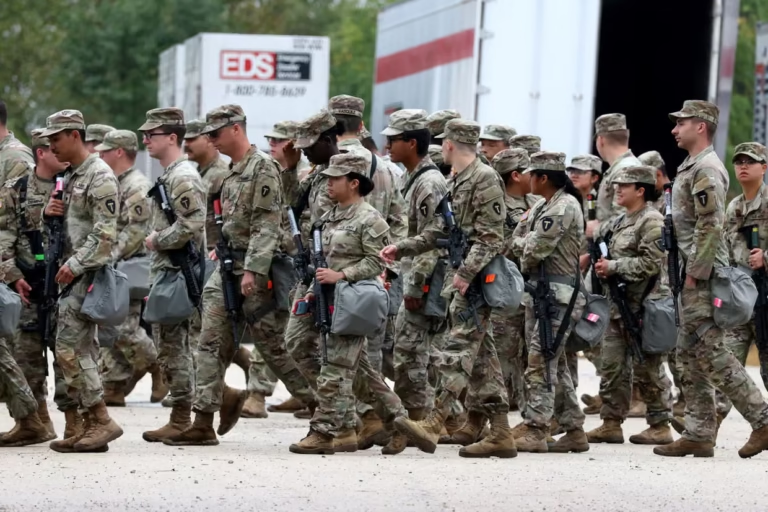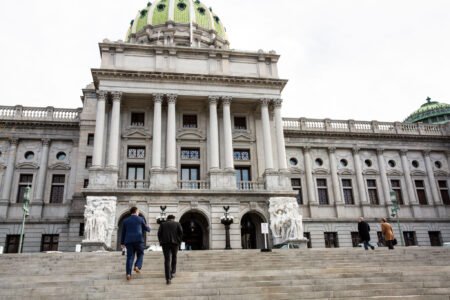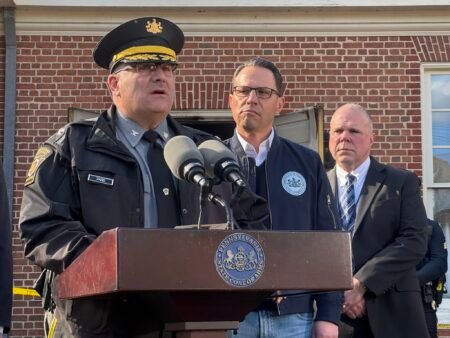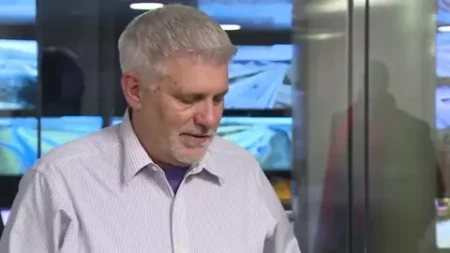Donald Trump has ordered that US military personnel be paid even as the federal government remains shut down. Experts warn this action may violate federal law and set a risky precedent for Congress’s power over spending.
The move addresses the needs of a politically protected group. At the same time, it bypasses Congress, which has the constitutional authority to approve federal funding. Legal experts say the president’s action could undermine the normal budget process.
Phil Wallach, a senior fellow who studies US government powers, said there is little legal justification for the president’s decision. He added that no congressional approval exists to pay troops for the new fiscal year. “It’s going far out on a legal limb,” Wallach said, noting that few people oppose paying service members.
The government shutdown began in early October after Congress failed to agree on federal spending legislation. Roughly 700,000 federal workers were furloughed, while many others continued to work without pay.
Historically, troops have been paid during shutdowns because Congress either approved defense spending or passed laws to guarantee their salaries. This time, Congress has not acted, though lawmakers have proposed bills to pay federal workers.
Last week, Trump repurposed about $8 billion in defense research and development funds to cover military salaries. Experts called the move highly illegal under federal law. Bobby Kogan, a former White House budget official, warned that using funds for unintended purposes could create serious legal trouble.
Trump also reported that an unnamed donor contributed $130 million to pay troops. The Pentagon confirmed the funds were accepted to offset salaries and benefits.
Christopher Mirasola, a law professor, said civil servants who executed Trump’s order could theoretically face prosecution under the Antideficiency Act. However, he doubts future administrations would pursue such cases. “Career officials would have suffered for following orders, even if illegal,” Mirasola said.
Trump’s opponents may also struggle to sue. They must show that paying troops caused them harm, a legal requirement that is difficult to prove, Kogan noted.
Experts view Trump’s action as part of a broader trend to shift spending power from Congress to the presidency. Since taking office, Trump has redirected funds to halt spending in areas he opposes, including foreign aid rescissions.
Wallach said the move could become more concerning if the president starts reallocating money for politically controversial projects. Paying troops is widely supported, but other spending decisions could provoke conflict.
Congress, particularly Republican appropriators, now faces pressure to assert its control over spending decisions. Experts say lawmakers are likely unhappy with the president overriding their authority.
Kogan warned that Trump’s actions threaten the appropriations process, which allows Congress to set spending priorities. If the president can redirect funds at will, it weakens Congress’s control. “This makes you an appropriations king,” Kogan said.
Such maneuvers could also make reopening the government harder. If the president can ignore budget agreements, trust in Congress may erode, complicating future negotiations.
Mirasola linked the funding decision to Trump’s use of National Guard troops in cities like Washington DC, Chicago, and Portland. He said current laws on domestic military deployment are outdated. Limiting Congress’s role in paying troops could expand presidential authority over domestic military actions.
Experts agree that Trump’s troops payment raises serious questions about the balance of power in Washington. The situation could influence both the federal budget process and the president’s use of military force inside the United States.







